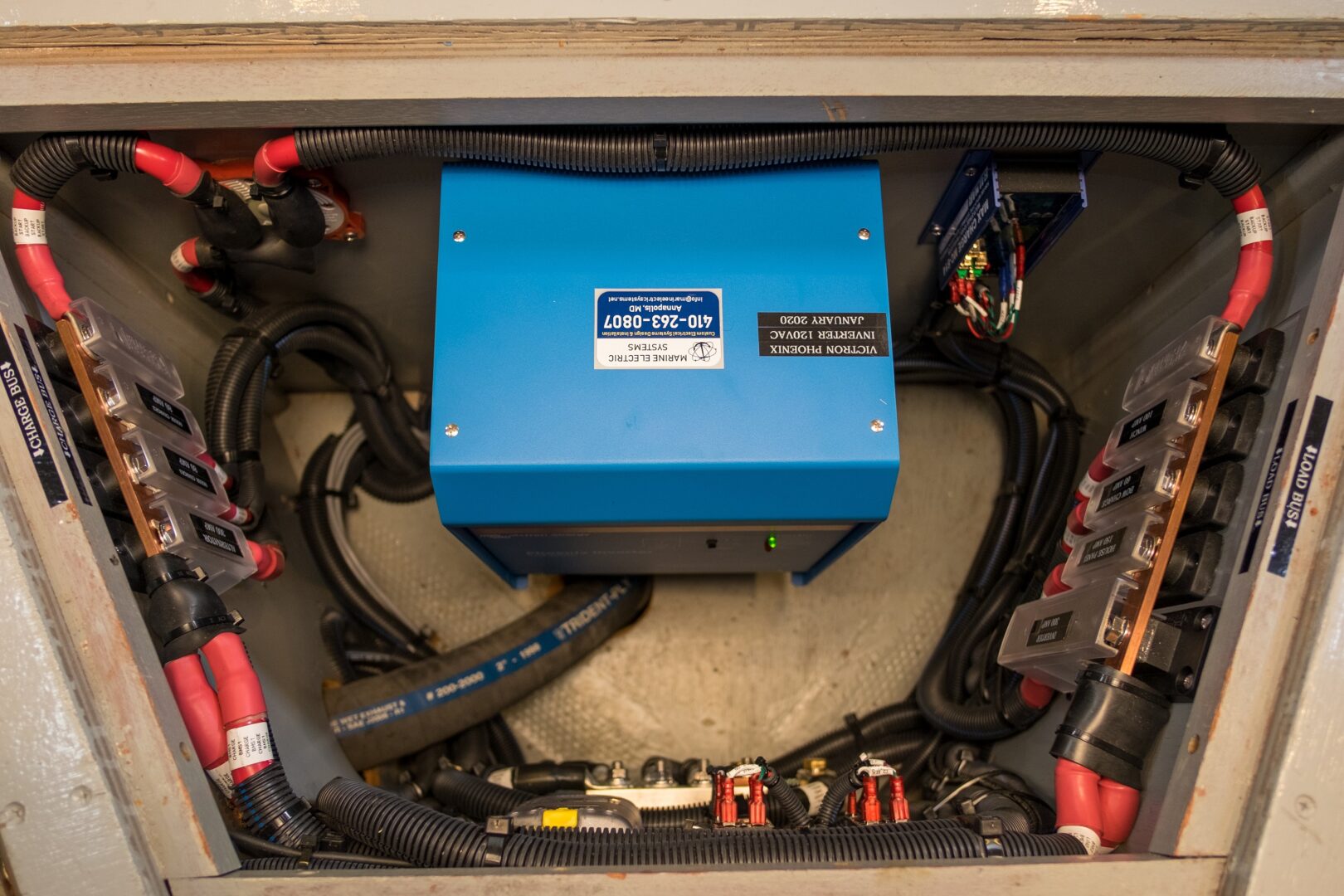
Charging is essential, so you must choose the right battery charger, including knowing the proper voltage for your boat.
Nothing can ruin a fun day on the water faster than a poorly charged or dead battery, whether it’s your starting boat battery, trolling motor battery, or house battery. Charging is essential, so you must choose the right marine battery charger, including knowing the proper voltage for your boat. Also, it is crucial to know the size of your battery and the safe way to charge it. Keep reading for some tips on choosing the best marine battery charger for your boat.
Match Your Boat’s Chemistry
Marine batteries are available in four chemistries: flooded, gel, AGM, and lithium. When selecting a charger, be sure the one you choose is compatible with your battery’s chemistry. If not, it can potentially damage your battery and shorten its lifespan.
Since different types of batteries power different things, it is common for boaters to use batteries with different chemistries. For example, a flooded battery is good for starting your engine, and an AGM deep-cycle battery can power everything else. In this case, you need a different charger for each battery.
Temperature Considerations
Another element of choosing the right marine battery charger involves considering the battery’s operating temperature. The recommended voltages for marine batteries largely depend on ambient temperatures. Most boats operate in a temperature range between 50°F and 90°F. Batteries operating at higher temperatures have lower charging voltages, while batteries operated at lower temperatures have higher charging voltages.
Ensure the Voltage is Compatible
Speaking of voltage, there are two things you need to consider: the voltage of the supply and the voltage of the battery. For marine batteries, 12-volt batteries are usually standard, although 24-volt and 36-volt batteries are sometimes used. 12V systems are typically used to power electronics like chart plotters, speakers, and appliances. You will find that more systems run on 12V rather than 24V. In contrast, 24V battery chargers are used for devices that require a little more power, for example, fridges or air conditioning units.
It’s essential to use a charger compatible with your battery’s voltage. Using the wrong charger can damage your battery, causing you to replace it prematurely. Consult your owner’s manual if you are unsure of your boat’s voltage requirement.
Charging Times
To determine how long your battery needs to charge, you’ll need to know the amp hour rating of your battery and the amperage of your charger. An amp hour measures how much amperage a battery provides per hour. You can find this information in the owner’s manual or the charger itself.
Marine Electric Systems, LLC is a Leader In the Maritime Industry
We here at Marine Electric Systems have over 30 years of industry experience. You can trust our team for reliable service and expert craftsmanship in the Maryland, Baltimore, Annapolis, and Baltimore city areas! We’re highly certified and adhere to all ABYC and NMEA regulations. We specialize in top-notch electrical solutions for recreational, commercial, and government boating clients. Anything from electrical refits, to navigation systems, or boating maintenance. To stay up to date on our services, follow us on Facebook, LinkedIn, Pinterest, Instagram, and YouTube. You can also contact us at 410-263-0807
